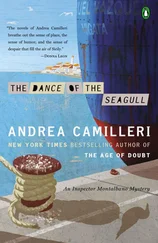Although he was haughty at our first meeting, looking down at me from a glorious height, he became my master from the moment he first spoke to me.
“Young namesake, this is not an amateur theater. Theories are worth nothing here; Stanislavsky and his cronies are no use to us. Nobody will tell you how to talk, move, make yourself up, or dress. You have to figure that out on your own. On the stage, the one with the most saliva swallows the driest bread. We are not working to go down in history, but to bring home the bacon, not to be admired, but to have fun for a couple of hours. It is your duty to entertain them, and if you can’t make them laugh you must at least make them smile. We are not seeking perfection, but effectiveness. Understand? Vanity will not do you any good. All that is required is that you learn the text by heart. There is no such thing as a bad comedian who knows his lines. If the audience applauds you, you’ll finish the season with us. If they don’t like you, we’ll replace you with someone else after seven days. But since I see you’re listening to me with the respect I deserve, let me give you one tip, and only one. Ask them to let you into the theater in the mornings. At that time no one is there. The cleaning crew starts after lunch. There is a work light, so you won’t have to be in the dark. Walk around, not only on the stage but also in the gallery and the auditorium; sit in each seat, take in the space, the floor, the walls. Stand in the center of the stage, look at all the angles, so that no detail escapes you. Integrate the room into your memory. Never forget this: an actor’s body starts in his heart, extends beyond his skin, and ends at the walls of the theater.”

Poster for the comedy El depravado Acuña by Santiago del Campo, inwhich Alejandro Flores played the role of Álvaro and I the mute Evaristo.
I could see Alejandro Flores’s effectiveness when the performances began. When speaking with another actor he did so facing the audience, never turning his head, like a cobra hypnotizing a crowd of apes. Every time the spotlight moved, whether or not the script justified it, he would move toward the illuminated area like a moth at night so that his eyes always gleamed. If another actor was speaking quietly, he raised the volume of his voice. If someone spoke too loudly, he would lower his voice to a mutter. He never let anyone else become the center of attention; he was the boss, and he made that clear at every moment. If someone had a long speech, he would fiddle around in order to attract attention, jingling a few coins in his pocket, struggling to adjust the knot in his tie as if his life depended on it, or simply having a coughing fit. He did all this in a pleasant, elegant manner, without any rudeness. It was an indisputable fact that the people came exclusively to see him. Flores liked indisputable facts. I remember one of his quaint phrases, uttered during conversation in the dressing room: “The fool, when he doesn’t know, thinks he knows. The wise man, when he doesn’t know, knows he doesn’t know. But when the wise man knows, he knows that he knows. The fool, on the other hand, when he knows, doesn’t know that he knows.” Being bald, he wore a toupee. It was not of very good quality. Before going onstage, I noticed that a few locks of hair had fallen off it, leaving a visible patch of bare skull. I drew his attention to it. He, with exemplary self-confidence, did not even make any gesture to touch his head. “Don’t worry, boy,” he said to me. “All of Chile knows I’m bald.” I do not know whether the calm he always exhibited was natural. Every day, before the curtain went up, a heavyset man of about fifty years old, with the face of a former boxer, would arrive carrying a doctor’s bag. He and Alejandro Flores shut themselves in the latter’s dressing room for a few minutes. “They’re my vitamins,” the star explained. “It’s morphine,” the other actors gossiped. Which was the truth? What does it matter! After the injection, even if the theater collapsed, the lead actor would have continued displaying his amiable, handsome smile. I remember on opening day we were all concerned because we could not find certain props that were necessary for staging the play. Flores shrugged. “The theater is a continuous miracle. If a play begins with a group of men in capes and the actors are missing their capes a second before the play begins, then when the curtain rises, the actors will be perfectly caped.”
The villain was supposed to shoot Flores from the shadows at the end of the first act. Flores was meant to collapse, making the audience think he had been murdered, only to reappear alive and bandaged in the second act. In one performance, the revolver did not work for lack of blanks. Flores, who was putting on his boots, waited a few moments for the gunshot, and seeing that it was not going to come, exclaimed, “Acuña has poisoned my boot!” Then he collapsed. “Life is a gray road: nothing is ever absolutely bad, nothing is ever absolutely good” was another of his maxims.
Since the audience applauded my performances, Flores granted me the honor of visiting him in his dressing room. The first thing that drew my attention was a toilet seat hanging from a nail on the wall.
“Boy,” he said, “however lofty the king may be, he still has to sit his buttocks on the miserable bowl. Hygiene, in most of the theaters where I act, is not very reliable. My faithful seat cover is always with me. In the same way that an actor respects his name, he must respect his ass.”
I then noticed that on a tall stool next to this intimate object was a bronze sculpture consisting of fifteen thick letters thirty centimeters high, forming a shiny ALEJANDRO FLORES.
“Do not be surprised, young namesake: although as a sculpture they are a vulgar jumble, those letters deserve my veneration. Today’s public is not attracted to the bag of bones that is my body, but to my name. While it is true that in the beginning I invented that name and put my energy into it as a father does with his son, today it has become my father and my mother. Alejandro Flores is a sound amulet that fills theaters. For example, when I go onstage the audience does not hear, ‘Good morning,’ but ‘Alejandro Flores says good morning.’ My name is what speaks and what exists. I am merely the anonymous owner of a treasure. I have heard that people in India keep statues of their gods in their homes to which they offer flowers, candied fruits, and incense, making the statues into idols, giving them the power to perform miracles through religious fervor. That is how I treat this set of letters, as an idol. Every day I polish them and perfume them. I offer the flowers people give me to them. When my mind is tired, I touch my forehead to them and recover. If business is bad, I rub them with my hand for a long while, and soon the money flows in. If I wish I had a woman to take away the night’s worries, I prop my heart up on them. They never fail me. Choose a name with fifteen letters, because that is the number of the Devil Tarot card, a potent symbol of creativity. The devil is the first actor in the cosmic drama: he imitates God. We actors are not gods, but devils.”
It was the first time that someone had told me that if one exalts one’s name, it becomes the most powerful of amulets. Jaime, wanting to become assimilated in Chile, to be equal to others, hating exclusion, never signed with his surname. His checks bore a brief Jaime. The Polish-Russian name Jodorowsky bothered him. Over the years I grew to understand that one’s first and last name contain mental programs that are like seeds; fruit trees or poisonous plants can grow from them. In the family tree, repeated names are the bearers of drama. It is dangerous to be named after a dead sibling; it condemns one to be the other and never oneself. If a girl is named after an old lover of her father’s, she is doomed to play the role of his girlfriend for life. An uncle or aunt who has committed suicide turns his or her name, over the generations, into a vehicle of depression. Sometimes it is necessary to change one’s name in order to stop these repetitions that create adverse destinies. A new name can offer a new life. This, I understood intuitively, was why most Chilean poets had achieved fame using pseudonyms.
Читать дальше













